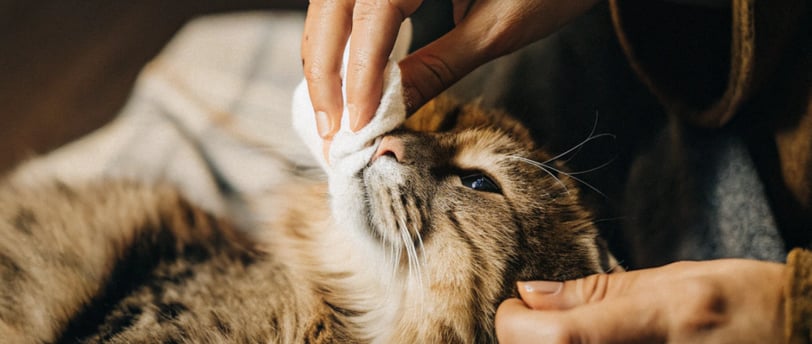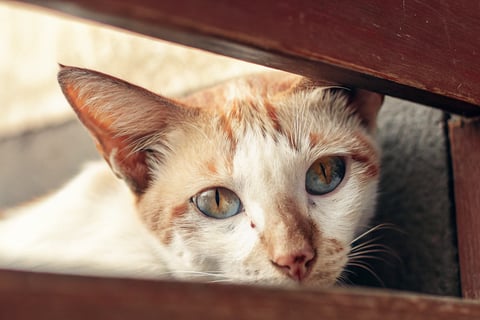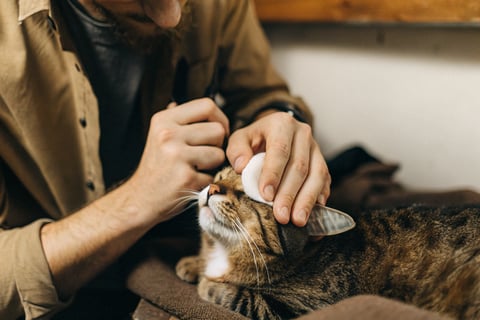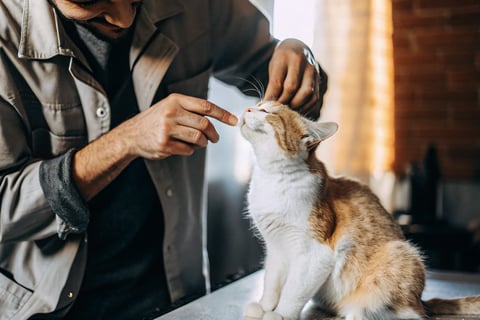How to groom and clean your cat’s eyes and ears
"Learn how to groom and clean your cat’s eyes and ears with this simple guide. Keep your cat healthy and happy with these stress-free grooming tips!"
1/7/20253 min read


Keeping your cat’s eyes and ears clean is an essential part of their grooming routine. Regular care helps prevent infections, removes debris, and ensures your cat remains healthy and comfortable. Here’s a comprehensive guide for beginners to properly groom and clean your cat’s eyes and ears.
1. Why Eye and Ear Care Is Important for Cats
a. Prevents Infections
Dirt and wax buildup in ears or excessive tear stains can lead to painful infections if left untreated.
b. Maintains Vision and Hearing
Regular cleaning ensures clear vision and optimal hearing for your feline friend.
c. Early Detection of Issues
Grooming sessions allow you to spot signs of infections, allergies, or other health problems early.


Learn more "The Ultimate Guide to Grooming Your Cat."
2. Tools You’ll Need
Cotton Pads or Gauze: Soft and gentle for cleaning.
Cat-Safe Cleaning Solution: Avoid using human products. Use only vet-approved solutions.
Tweezers: For gently removing debris from ears (if necessary).
Towel: To secure your cat if they get fidgety.
Treats: To reward your cat and create a positive experience.


3. How to Clean Your Cat’s Eyes
Step 1: Inspect the Eyes
Look for redness, discharge, or excessive tearing.
Check for signs of irritation or cloudiness.
Step 2: Gently Remove Debris
Dampen a cotton pad or gauze with lukewarm water or a vet-approved eye solution.
Gently wipe around the eyes, moving from the inner corner outward.
Use a new pad for each eye to prevent cross-contamination.
Tip: Avoid touching the eyeball directly. Focus on cleaning the area around it.


4. How to Clean Your Cat’s Ears
Step 1: Inspect the Ears
Check for wax buildup, redness, or a foul smell—these could indicate an infection.
Healthy ears should be pale pink with minimal wax.
Step 2: Apply Cleaning Solution
Hold your cat securely and gently pull back their ear flap.
Squeeze a few drops of a cat-safe ear cleaner into the ear canal.
Massage the base of the ear for 10-15 seconds to loosen debris.
Step 3: Wipe Away Debris
Use a clean cotton pad or gauze to wipe the inner ear flap.
Avoid inserting anything deep into the ear canal, as it can cause damage.
Check out ASPCA: Grooming Tips.


5. How Often Should You Groom Your Cat’s Eyes and Ears?
Task Frequency
Eye Cleaning Weekly or as needed
Ear Cleaning Once every 2-3 weeks
Tip: Long-haired cats or breeds like Persians may require more frequent eye cleaning due to tear staining.
Learn more "Top Tools for Grooming Your Cat at Home."
6. Signs of Eye and Ear Problems in Cats
a. Eye Issues
Persistent redness or swelling.
Thick, yellow, or green discharge.
Cloudy or watery eyes.
b. Ear Issues
Excessive scratching or head shaking.
Black or brown debris resembling coffee grounds (a sign of ear mites).
A strong, unpleasant odor from the ears.
If you notice any of these symptoms, consult your veterinarian immediately.


7. Tips for a Stress-Free Grooming Experience
Start Early: Begin grooming your cat as a kitten to make it part of their routine.
Create a Calm Environment: Groom in a quiet, well-lit space.
Take Breaks: If your cat becomes agitated, pause and try again later.
Use Positive Reinforcement: Reward your cat with treats and praise after each session.
Check out PetMD: Cleaning Your Cat’s Ears and Eyes.
Conclusion
Cleaning your cat’s eyes and ears is a simple yet vital aspect of their grooming routine. By incorporating these steps into your care regimen, you’ll help prevent health issues, keep your cat comfortable, and strengthen your bond with your feline companion.
